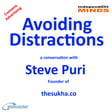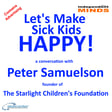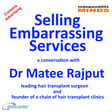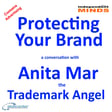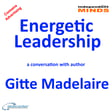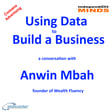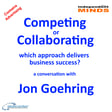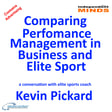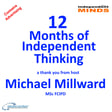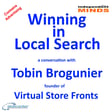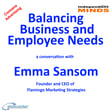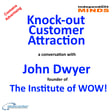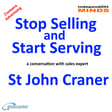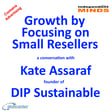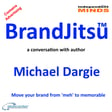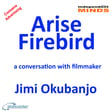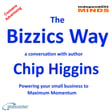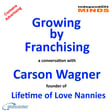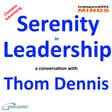
Are You Informed? – a conversation with founder Kira Shishkin
We have access to much information than ever before, but it all accessed via a filter that is managed by someone else. Can we really say we are informed?
Kira Shishkin is a serial entrepreneur who has founded companies that developed technology with practical applications. His latest venture is informed.now the daily news SMS service that delivers unfiltered news direct to your phone.
In this episode of The Independent Minds Kira explains to host Michael Millward how although we have access to more information than ever before, that before that information is presented to us it is first interpreted by an individual or organisation to fit their preferred agenda.
This promotes a perspective rather than an authentic understanding. In turn this creates polarisation of views and eventually conflict.
After being born in one conflict torn country and coming of age in another Kira explains how this information control process and its potential to create a devastating outcome inspired him to create informed.now.
Kira explains how informed.now ensures that it is accessing primary news sources that are fact-based and the editorial process that identifies the stories that will have the most impact on the world.
This episode of The Independent Minds will make you question how you consume news information.
More information about Kira Shishkin and Michael Millward is available at abeceder.
Audience Offers
The Independent Minds is made on Zencastr, because as the all-in-one podcasting platform, Zencastr really does make creating content so easy.
If you would like to try podcasting using Zencastr visit zencastr.com/pricing and use our offer code ABECEDER.
Travel
With discounted membership of the Ultimate Travel Club, you can travel anywhere at trade prices on flights, hotels, trains, and many more travel related purchases.
Fit For Work We recommend The Annual Health Test from York Test; a 39-health marker Annual Health Test conducted by an experienced phlebotomist with hospital standard tests carried out in a UKAS-accredited and CQC-compliant laboratory.
A secure Personal Wellness Hub provides easy-to-understand results and lifestyle guidance
Visit York Test and use this discount code MIND25.
Visit Three for information about business and personal telecom solutions from Three, and the special offers available when you quote my referral code WPFNUQHU.
Being a Guest
We recommend the podcasting guest training programmes available from Work Place Learning Centre.
We use Matchmaker.fmto connect with potential guests If you are a podcaster looking for interesting guests or if you have something interesting to say Matchmaker.fm is where great guests and great hosts are matched and great podcasts are hatched. Use our offer code MILW10 for a discount on membership.
We appreciate every like, download, and subscriber.
Thank you for listening.
